In Western and European countries, there is an entire billion-dollar industry dedicated to weddings. Many of us are expected to dream about expensive and elaborate weddings that are more about impressing others than symbolizing the love between two people.
You might be surprised to learn that in Japan, they see weddings as entirely different occasions.
Not only do people wait a lot longer to get married, but Japanese wedding ceremonies and customs are much more intimate and symbolic than in other countries.

Marriage Isn’t As Popular As It Once Was In Japan
Both marriage and starting a family are not popular options like they once were in Japan. There is research that suggests that by 2040, half of the population in Japan will be made up of single people, based on current trends.
There are many factors leading to fewer people yearning for married life, from finances to difficulty finding a suitable mate, and even to the way marriage is viewed in Japan.
Japanese women are also emerging from previous gender roles practiced in Japan, and more of them are working. Thus, they don’t see marriage as a priority.
In these stressful economic times, many women have no choice but to work, and being a housewife doesn’t seem as possible as it once was.

People Are Getting Married At Older Ages
There wasn’t a lot of freedom of choice for marriage until the mid-1900s for both men and women in Japan.
Once people were given the opportunity to choose their partners and whether or not they even wanted to get married, many people chose to wait longer before tying the knot.
The ages of when people are getting married in Japan have risen over the past 20 years. In 2019, the average age that men chose to get married was around 31, and for women, the average age was 29.
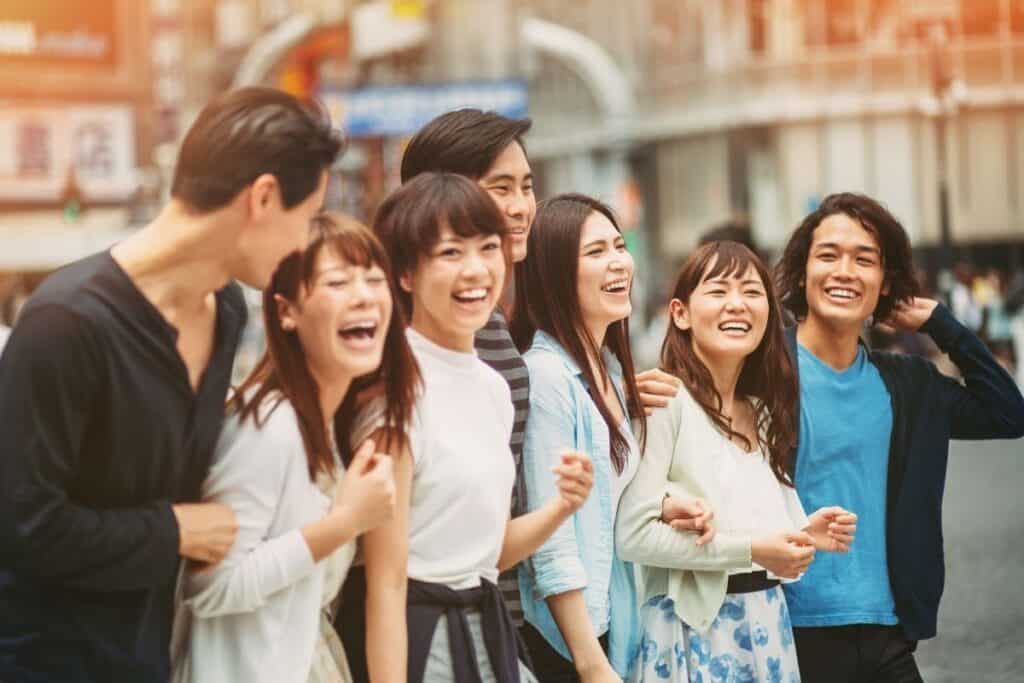
Weddings Aren’t Seen As Financial Feasible Anymore
Weddings can drain your bank account very easily, even if you are trying to plan a modest and intimate celebration. It’s a lot of money to spend on one day that is very fleeting.
With women having to work and enjoying working, they don’t see it necessary to rush into getting married as they enjoy their independence.
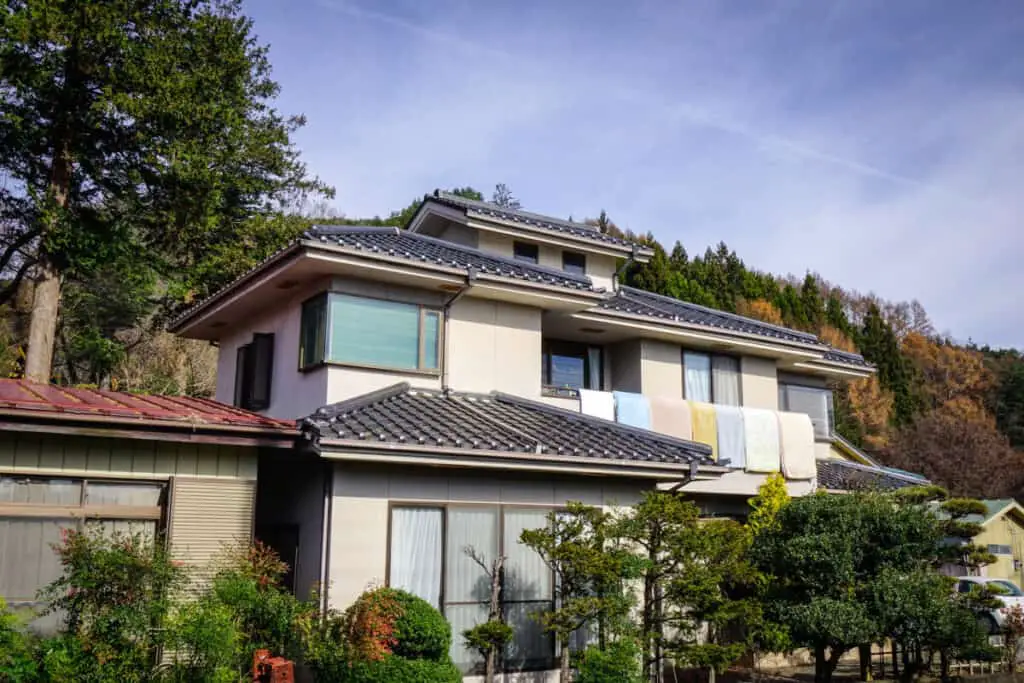
Being able to be self-sufficient is often the goal, with marriage and children becoming secondary.
Men in Japan are also stressed about how financially feasible getting married might be. As Japanese men feel pressured to be able to sustain a household with their own income, they are not wanting to get married until they feel they can comfortably support a family financially.
Modern Japanese People See Traditional Marriage Customs As Outdated
Western-style weddings, with elaborate dresses and extravagant venues, started becoming somewhat popular in Japan in the 1990s.
Japanese weddings have taken some inspiration from these lavish affairs but in a much more relaxed and toned-down manner.
Traditional Japanese weddings are usually more intimate and there are customs in place that honor Japanese culture. For example, in Shinto weddings, women will typically wear kimonos and the couple will get married by a shrine.
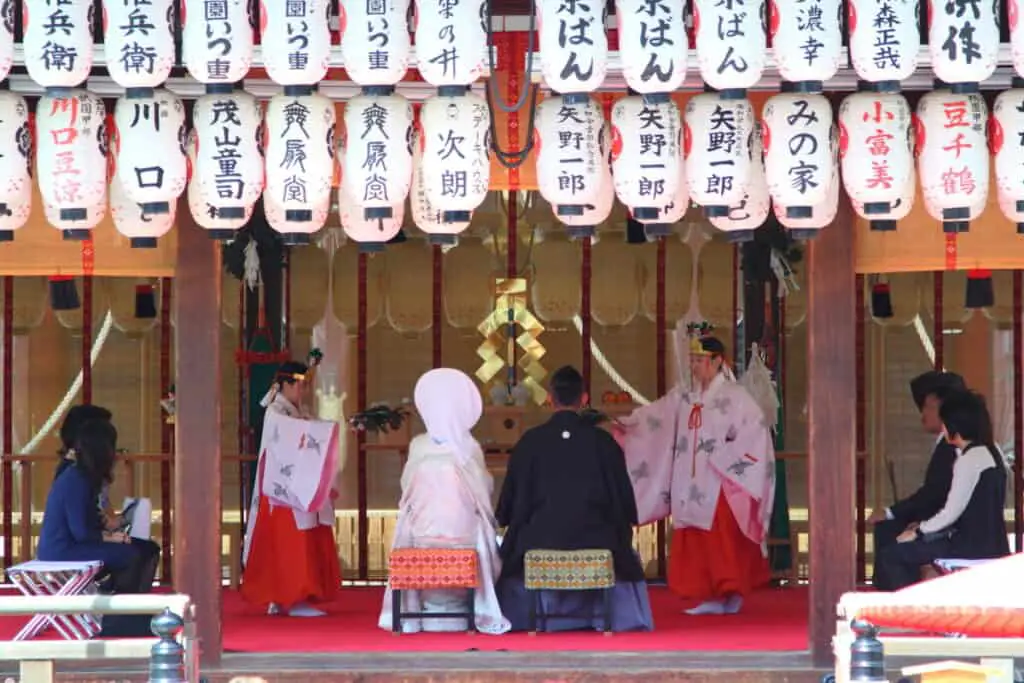
While it’s not practiced as much today as it once was, there are also arranged marriages that still occur in Japan, called omiai.
Couples will be brought together and will typically get married shortly after meeting, or within a year of meeting.
There are also omiai services (similar to matchmaking services in the west) in Japan where people can pay to have a potential marriage arranged for them.
While the rates of people engaging in omiai are down, the divorce rates for couples who have had omiai marriages in Japan are lower than those who meet organically.
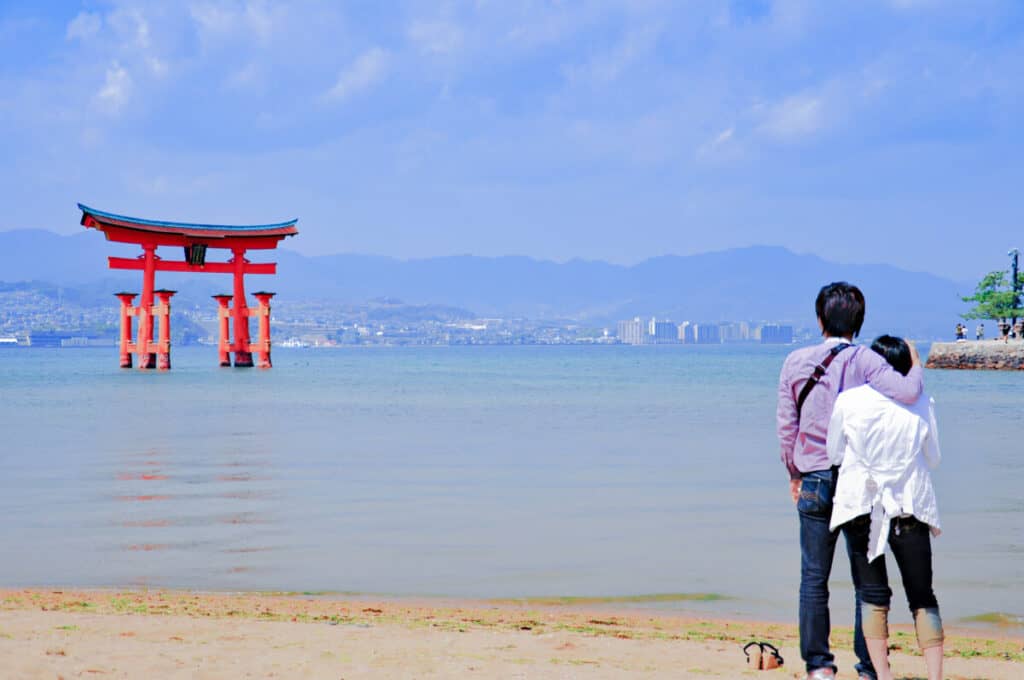
Same-sex marriages are also not legally recognized in Japan right now. While same-sex couples can engage in ceremonies, they do not get the same rights as a married couple as an opposite-sex couple.
Given that there is a rise in LGBTQIA+ people living in Japan, this excludes some from the marriage market.
The Evolution Of Marriage In Japan
The concept of marriage and weddings has evolved drastically from when Japan was first established as a country to the modern day.
Marriage was once considered customary before having children, and it was less about love and more about practicality.
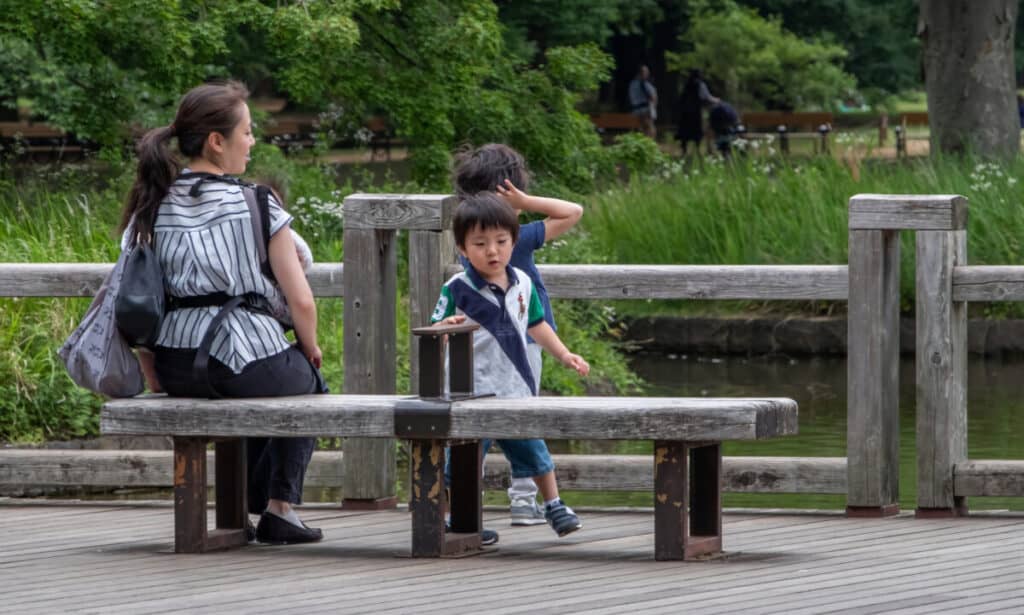
The Heian Period
Typically, a couple was considered married in the Heian period when they met three times, but they would often communicate via letters before then.
They would not have a ceremony but often would share a meal organized by the woman’s family to commemorate the marriage.
The Edo Period
The Edo period saw many omiai marriages which were typically arranged by the man of the home. It was not considered acceptable to remain single for long or to choose to be single.
People would be married to a partner of equal social and economical class, and if they did not bear a son, they would typically adopt a male child so the couple would have an heir.
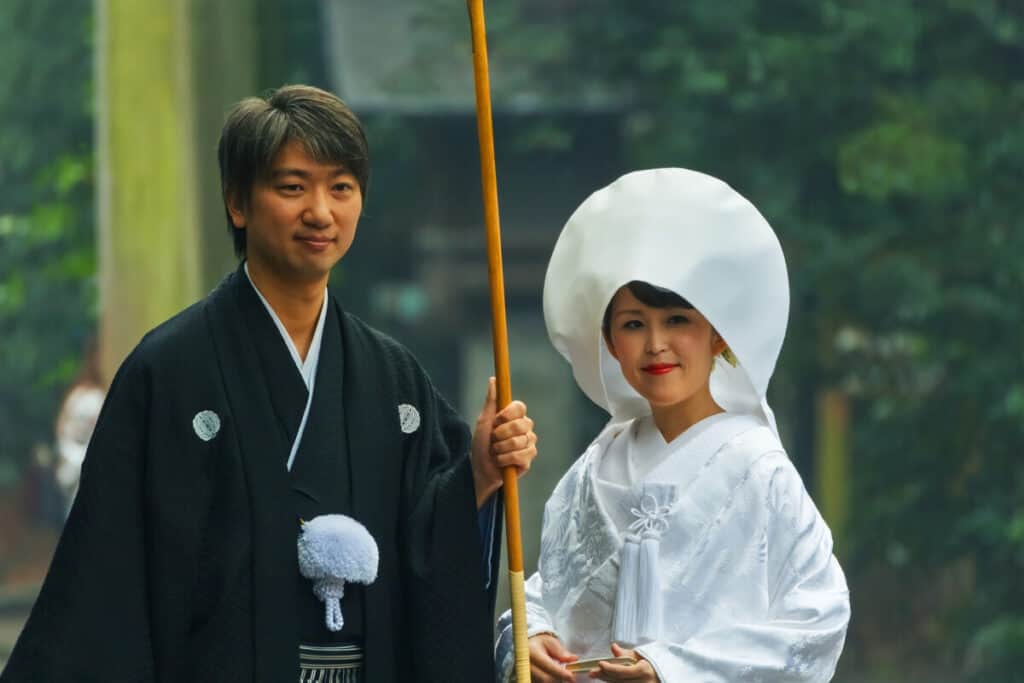
People were not allowed to marry individuals outside of their own class; this was a law until the late 1800s.
Furthermore, marriage between a Japanese person and a non-Japanese person was not permitted in Japan until the late 1800s as well.
The Meiji Period
Omiai marriages still continued into the Meiji period, where the head of the household was responsible for arranging the marriage. Sometimes couples would meet beforehand, while some couples only met for the first time at their wedding.
Even if a relationship chosen by each person within a couple was allowed, there weren’t many opportunities for men and women to meet in social situations.
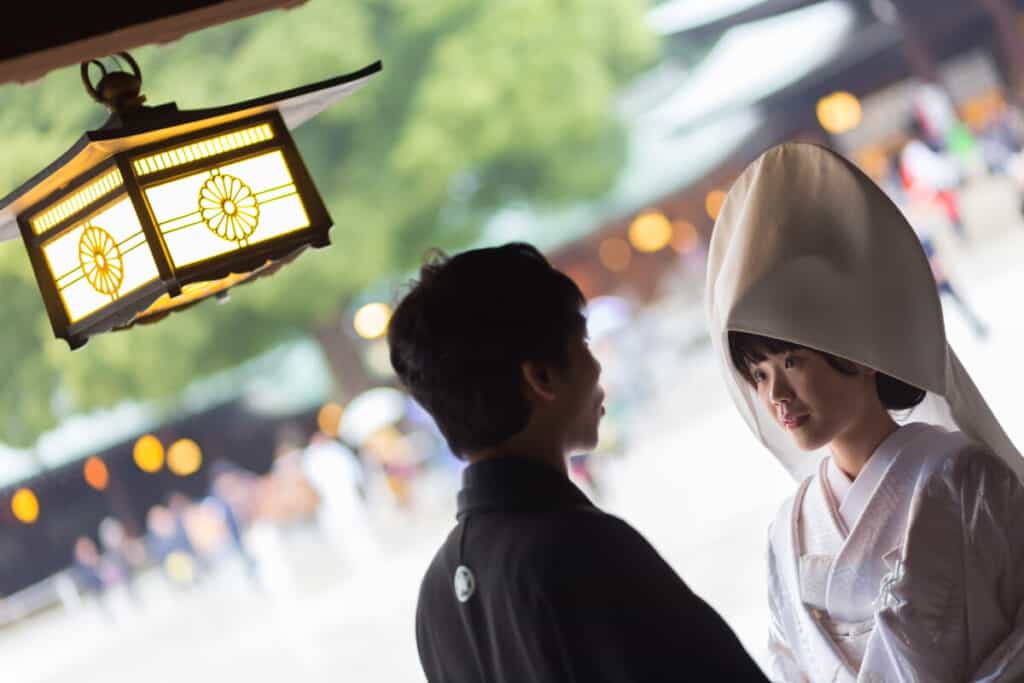
Many couples who met would have to hide their relationship or they would get in trouble. Sometimes a family would pretend a marriage was arranged between two people in love, but more often than not, these couples would be forced to separate.
The Post-War Period
After the Second World War, the Constitution was changed in Japan to change the definition of marriage, in order to give women more choice in the matter.
The customs that existed where men took precedence over women, and males were the only heirs to family lineage and fortunes, were all eliminated.
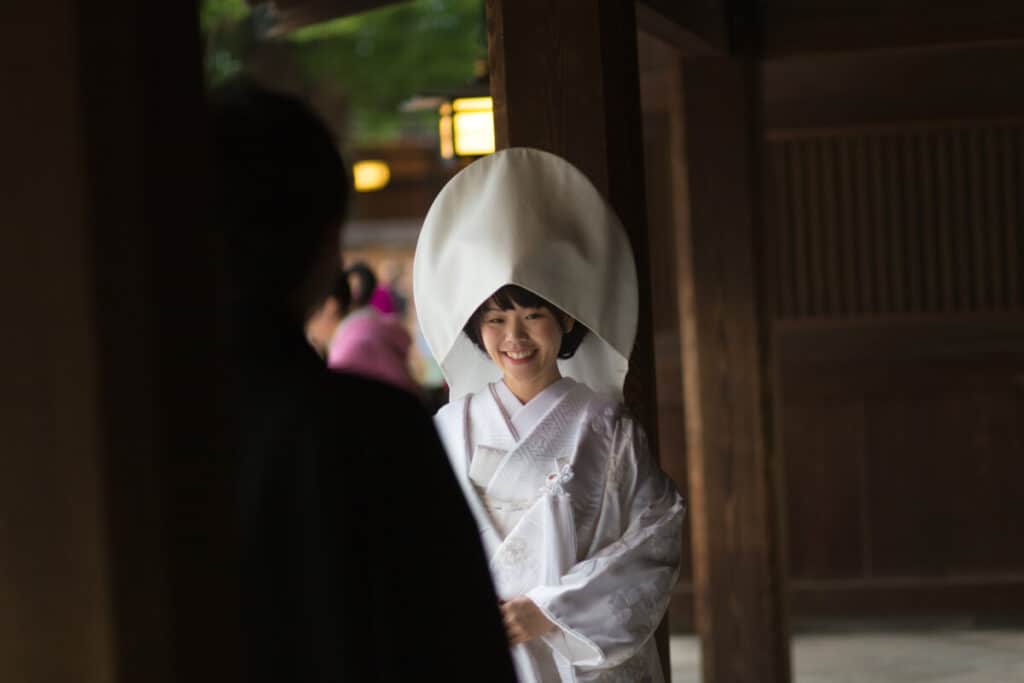
This meant that marriage could be entered by two people in love, regardless of how they met. However, same-sex couples still cannot get legally married in Japan.
Solo Marriages Are A New Interesting Trend In Japan
For women who dream of their perfect day as a bride but either haven’t met a suitable mate or don’t want to get married, they can engage in a solo wedding in Japan.
These solo marriages consist of a woman being able to get dressed up in a gown, getting her hair and makeup done, and riding in a limo before getting professional photos taken.
She can also stay in a hotel. Specifics will depend on which service a woman goes with to indulge in a day of being a bride without getting married.
The Pandemic Has Hurt The Wedding Industry In Japan
Japan could not escape the devastation to its wedding industry due to the pandemic, as most of the world could not either. Japan saw between 50-60% of weddings planned for 2020-21 either canceled or postponed.
The wedding industry has scrambled to find solutions that abide by COVID guidelines so couples could still salvage their wedding day.
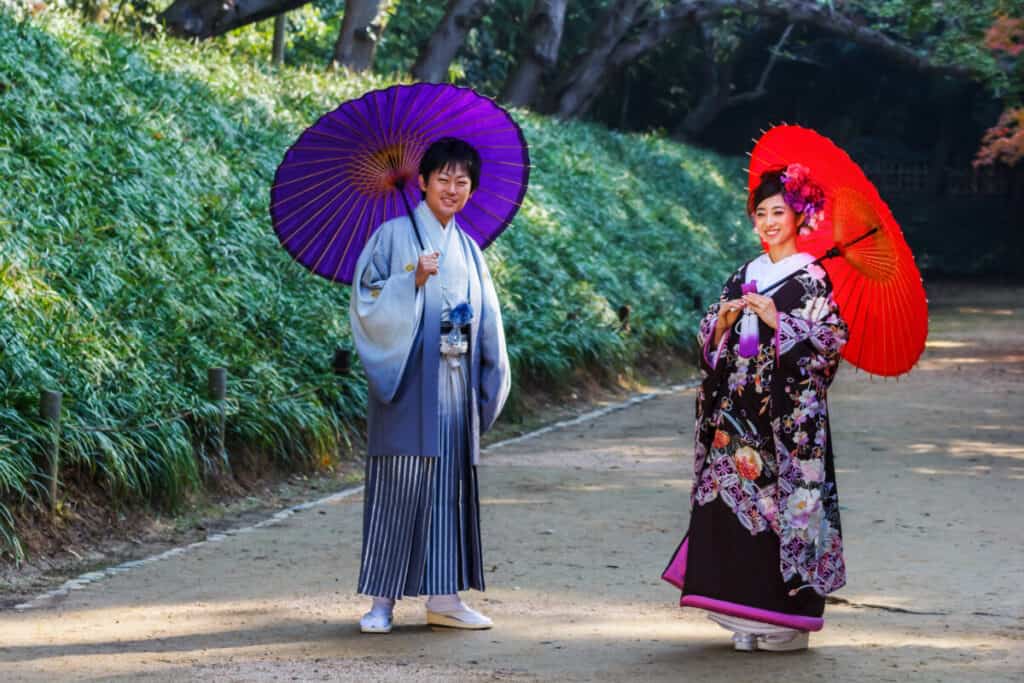
Interestingly enough, Japan came up with a unique solution for couples who were already engaged and didn’t want the strain of closures and isolation to affect their marriage.
An example of this would be with Kasoku, who allowed short-term rentals of rooms for couples to be able to temporarily have some space for each other.
Dating Services And Online Dating Are Just Getting Popular In Japan
While online dating has been huge in the Western world for years, the same cannot be said in Japan.
However, online dating and dating services are growing, with Japanese singles seeing a 20-30% boost in success rates for finding relationships when using online dating services.
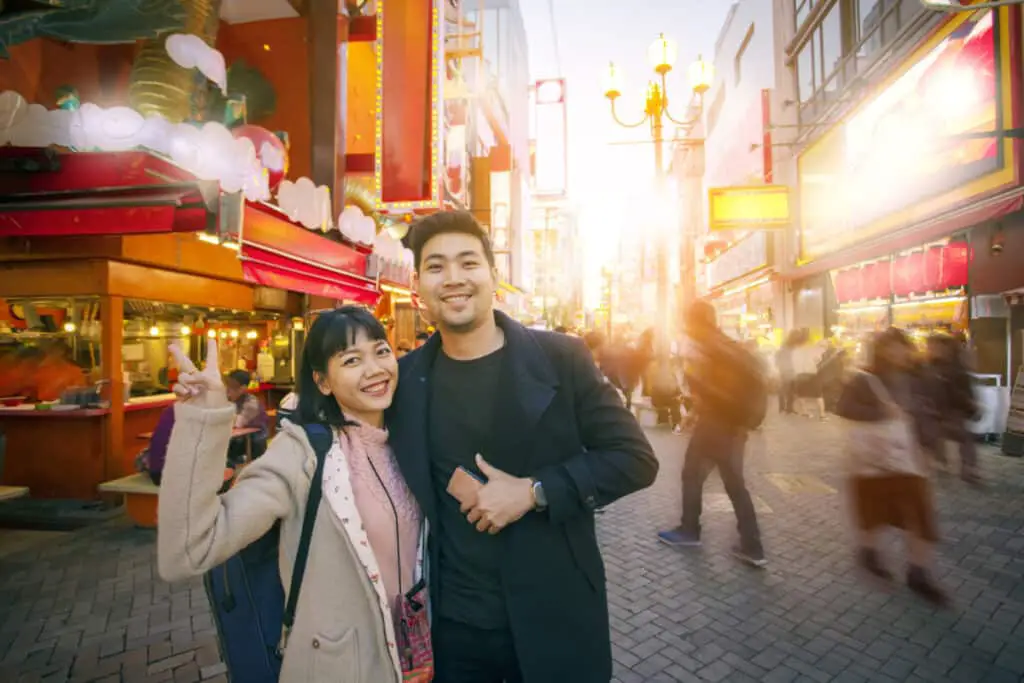
With the pandemic making it more difficult to meet people in person, many online dating services and dating agencies saw more people opt-in for consultations and decide to use their services to find a partner.
A lot of agencies took advantage of this need by offering free consultations to entice people to join their service.









